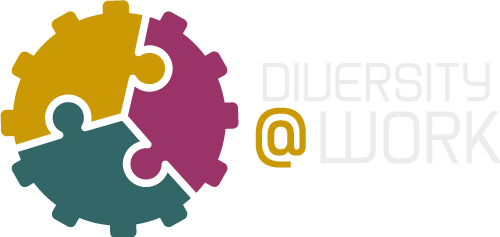Ten years ago, the European Commission established the EU Platform of Diversity Charters to support companies, public institutions and non-profit organisations in placing diversity, inclusion and solidarity at the heart of their activities.

4.2MB - PDF
In the decade since, the EU Platform has grown impressively to number twenty-six national Diversity Charters with over 12,000 signatory organisations, covering 16 million employees in Europe.
The texts of each of the Diversity Charters is tailored to national circumstances such as history, culture, business and public policy environments. Critically, each contains the core commitment of equal treatment in employment and occupation on the grounds of gender, religion or belief, disability, age or sexual orientation and the grounds covered by national legislation in the member states.
When organisations choose to become signatories to their national Diversity Charters they are publicly committing to addressing and promoting diversity and inclusion (d&i).
Each of the twenty-six Diversity Charters works with their signatories to encourage them to act with ambition and put in place d&i measures that are appropriate to their needs. The twenty-six Diversity Charters vary in terms of structure, length of time in operation and funding mechanisms.
European Diversity Charters have gained a wealth of experience, through the utilisation of a variety of tools and the delivery of a range of initiatives, generating considerable learning in the process. Ten years on, with twenty-six Diversity Charters now active, the opportunity to develop a comprehensive toolkit bringing these tools together has never been more timely.
The publication of the Charter Implementation Toolkit (CIT) is a particularly welcome development, coming at a time when the European Commission has committed to more concerted activity on equality, and has just launched the new annual European Diversity Month with the EU Platform of Diversity Charters.
The CIT is the outcome of a consultative, collaborative approach, involving ongoing discussion and detailed engagement with each of the Diversity Charter partners of the Diversity@Work project, funded by the European Commission. This uniquely iterative approach ensured that we garnered tools that covered the spectrum of dimensions involved in d&i work, underpinning the intersectional approach to promoting diversity, equality and inclusion.
The CIT is a compendium of ideas and inspiration about activities and initiatives to help promote and embed diversity, equality and inclusion work in organisations. The CIT pdf is available online for an audience with an interest in promoting diversity and inclusion in the workplace. Intended for use by Diversity Charter professionals with the relevant personnel in their signatory organisations, the CIT may also be useful for diversity champions in other organisations, such as those working in business intermediary organisations.
A new deliverable, the digitisation of components of the CIT, involved their adaptation for the online environment, the creation of a digital hosting site and the recording, editing and inclusion of videos by the individual Diversity Charters in the Diversity@Work project. This creative, multi-media approach ensures a future proofed digital CIT. The Diversity Charter videos will help to attract new audiences, and the resources section of the digital CIT can be regularly updated so that new tools can be included as they become available. The digital CIT also contains password protected digital forms to enable the Diversity@Work Charter personnel to enter information to generate reports, helping to build awareness of aspects of the work that the Diversity Charters choose to highlight individually or collectively.
The CIT is a significant body of work, and the outcome is impressive. The creation of the CIT means that for the first time there is a resource which can be used by all Diversity Charter personnel to discuss, organise and build an understanding of the range of actions, ideas and tools that they can use to help their signatories.
Work on this unparalleled undertaking remains ongoing. Diversity Charters are a dynamic group of organisations that will continue to implement a variety of actions, gain experience and support and attract more and more signatories. As they do so, they will gather more information about activities and tools, discuss and review results and provide updated information to ensure that the CIT remains current, helping sustain the vital work in which the Diversity Charters are engaged, well into the future.















